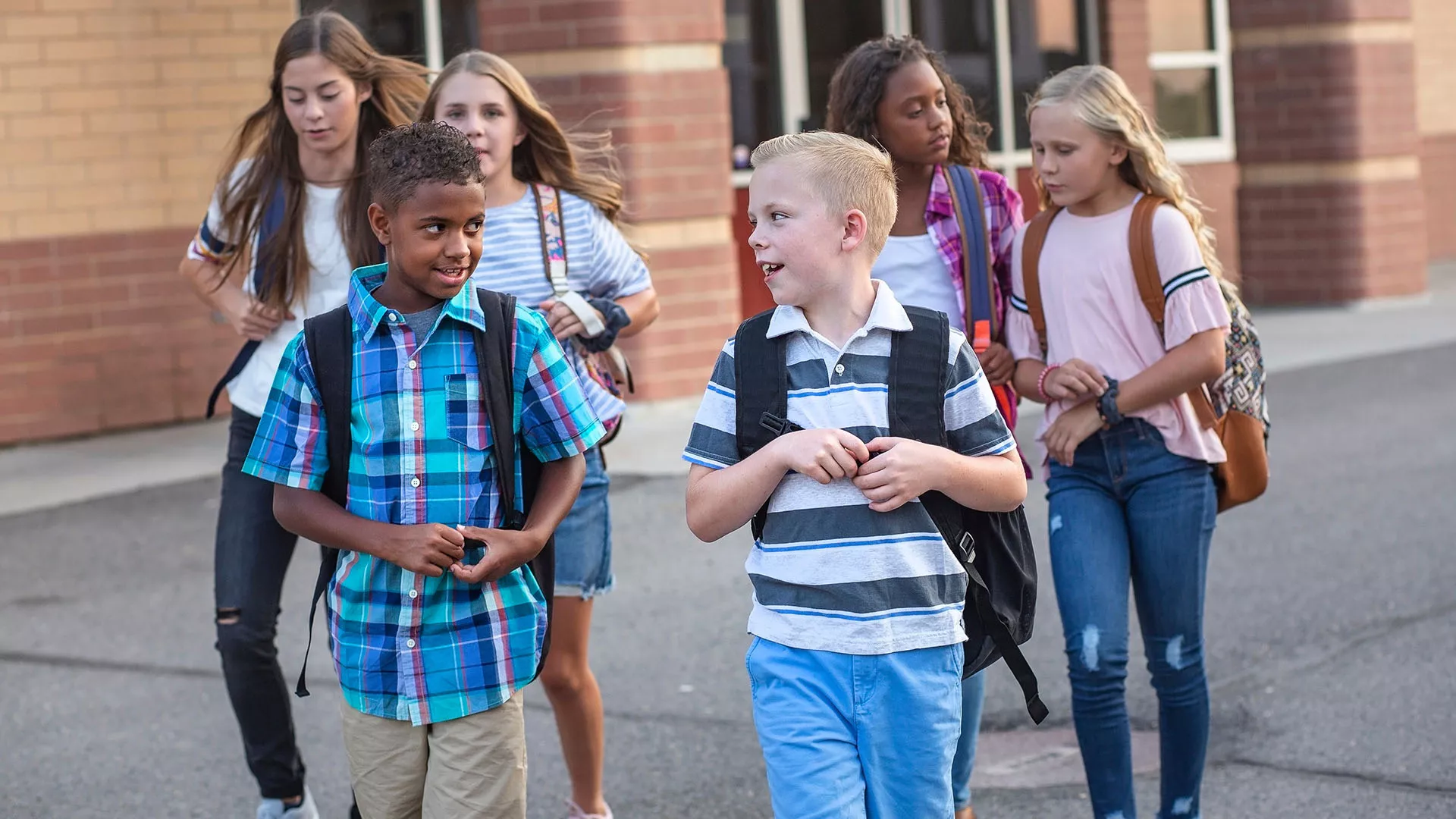1. Listen to the families’ concerns and questions.
Special Educator Teacher Shira Moskovitz says the first step is to meet with parents, listen to their concerns without judgment, and remember to see and hear them as people first. Families have raised a number of concerns in conversations such as these with her, including the following:
- Facing stigma at home or in the community
- A child being exposed to others’ disabilities in the special education setting
- A child who the family believes does not “really need help” or have a disability
- A diagnosis that prevents the child from going to college
- A lifelong diagnosis/label that may limit future opportunities
- Lack of understanding about how learning disabilities are different from physical disabilities
"The biggest thing is to hear them out and to hear what their concerns are, and then validate and address their concerns."
2. Make sure that families have information about the process.
It’s also essential to ensure that families understand what the special education process is, what the services will or will not do, and what their rights are as parents. In some cases, addressing these questions can open the door to more fruitful conversations. It’s important to think carefully about who attends the early meetings as the parents are first getting started, however.
For example, Special Education Administrator Loretta Cozza explains how she approaches these conversations. “Understanding the IEP is really key, and I encourage teachers to call parents and invite them in to a meeting. I’ll give them release time if needed. We start the meetings with individual teachers, so it’s not as intimidating, and then open it up to the team. If needed, the next thing would be to involve the guidance counselor, a social worker, the school psychologist, or whoever is on that student support team, and that can also be done one-on-one or with a small group, depending on the nature of the situation with that family. And then the third level would be to bring in an administrator.”
Ms. Cozza also notes that home visits can make a difference and it’s important to meet families where they are. “We just did a home visit and it was really eye-opening to see the extent of poverty that was impacting the family. They met us on the porch and we asked them, ‘Do you want to put your coats on?’ They explained that their coats were in the dryer and they didn’t have any other coats. You have to be really sensitive to what the parents’ needs are. And you have to meet them where they are We say that all the time, but it really means humbling ourselves and meeting them where they are.”
3. Learn more about cultural perspectives that might be shaping families’ perceptions.
In some cases, cultural factors or perceptions may be shaping how a family feels about special education. One step you can take is to learn more from cultural liaisons or community organizations that have relationships with families. Ms. Moskovitz says, “When I recognize that a community might have this particular concern, I already know how I’m going to respond to that. Then I can hear them out and address their concerns.” She also says that some basic research can shed light on perceptions or even myths within the community.
Special education teacher Genesis Gonzalez has also seen some reluctance to accept learning disabilities within diverse groups of families she serves and has tried to find different ways to support understanding so students can get appropriate services. Unfortunately, sometimes the situation ends up creating more stress for the student at home and so it’s important to proceed with sensitivity.
Yet Ms. Gonzalez is also empathetic to parents who are reluctant to accept or address a disability. Her daughter is in first grade and is in the process of being evaluated for a learning processing issue. “It was hard for me to even accept that I had to go that route because I’m a teacher. I kept thinking, ‘I’ve been teaching you since you were a baby. Why is this happening?’” But I had to check myself. A little bit of help won’t hurt. I feel like it would be easier for parents to accept if we didn’t make learning disabilities such a taboo.”
4. Be prepared to have multiple conversations over time.
Sometimes, multiple conversations are necessary over time. Ms. Moskovitz shares the following examples:
- A boy came to her inclusion classroom but his parents didn’t want him working alongside students who were receiving special education services. “His parents had a strong cultural perspective that kids with different abilities might impact their son,” Ms. Moskovitz explains. The student told her he was “normal” and didn’t belong in the class. “I heard the family out and I explained that if we’re seeing a decline in their child, we would address it, but that we expected him to thrive here. And by the end of the year the mom came back and said, ‘I do see what you’re doing here.’ We didn’t change the mother’s whole mindset about every single person with disability, but the fact that she didn’t think that it would somehow ‘rub off’ was a huge leap.”
- In another case, a mom came in every week for parent time over a few months. “She would sit down and she would just talk, and sometimes it was talking in circles and we’d bring up the same concerns again, but she was just anxious. And at the end of the day, we came to a resolution that made her comfortable and got her child the services that he needed. Seeing the parents as people makes a real difference.”
Special education teacher Genesis Gonzalez also has seen the power of patience. She shared the story of a family in which an older child had already been diagnosed with autism, and the mother was reluctant to accept that her younger child might also be autistic. Ms. Gonzalez says it took six months for the mom to open up to the idea and that it was challenging to keep delivering the message. But, she says, “our job is just to be here and try to support them and get them to understand that sometimes kids do need these services and these services are okay.”
Ms. Gonzalez kept a conversation going about what was happening with the student, and when she asked the mom to start working more with the child at home, the mom saw the extent of the challenges. “‘Let’s get him the help,’ she said. She agreed to an evaluation, she agreed to a behavior plan, and ultimately, it did lead to was a behavior plan. She was okay with it. It took six months for her and sometimes it takes a year.”
Learn More
Use Your Educator Voice.






